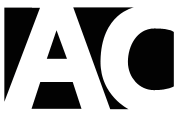One of my big projects for 2013 is a sort of ground level documentation and foundation-building for our business.
In simpler terms, we’re running the business like freelancers and I want to change that. Since we kind of made things up as we went for years, there are a lot of important pieces we don’t have in place.
Just a handful of small changes have already allowed us to grow, try new things and work less.
For me, that means lots of reading. Like hours and hours of it, plus note taking, plus research.
Friday I was reading a book by Jim Cockrum – he’s a pretty successful guy and while most of what he writes about doesn’t apply to us, there are a bunch of very good ideas in there too.
So, I was reading and there was a section in the book about various tools he recommends and I’m thinking “this sounds great!” until I go to the website of said tool and find that it was taken down almost two years ago.
Frowning, I open the book to the copyright page and see that it was published in spring 2011.
Now, in most cases, this wouldn’t matter.
Information doesn’t expire as fast as the trade-in-value of a new car or the shininess of your new iPhone. But in this particular case it did matter because Cockrum was recommending a tool that was purchased by another big company and taken offline.
Which happens a lot.
So, it was not a useful tip – heck, it was probably never a useful tip because the book was published around the same time the parent company said they discontinued the tool’s use.
To be sure, I don’t have a problem with Cockrum’s book. It’s loaded with good tips – most of which are evergreen or close enough to be useful. It’s also not the only time it’s happened. Jon Jantsch’s Referral Engine is one of the best business books I’ve read in years and it’s loaded with dated advice on topics like podcasts and cloud software, plus he recommends the exact same, discontinued tool as Cockrum.
There is a new and growing “social” structure of books and research materials. For decades, if you wanted to learn about how to run a business, you went to school or read a book.
Books were only published by highly successful or highly educated business owners and marketers and the advice was often top notch.
These days, there are problems.
First, business evolves so fast. Things are so short lived, advice is so proprietary and tools are only active for as long as they are financial viable (and independent) that printing something in a physical book is risky.
That’s why modern business books almost always have a website to go with them and why they often have second, third or fourth editions printed.
Anything more specific than a mindset book like The 4-Hour Work Week is going to be outdated fast.
What does this mean for you as an aspiring business owner? It means you need to be prepared for such changes. You need to absorb information not only from books but from blogs and eBooks that can be updated in real time.
Do you know how long it takes to do a second or third edition of a popular business book and get it to print? Weeks. Sometimes months. An eBook? A few hours.
It’s why my own publishing efforts are online and why Kindle is so popular, even for people who have the audience and resources to get something in print. It’s why Shoemoney’s first print book is an autobiography not a business book and why he releases one or more eBooks every year.
Be sure as a business owner to diversify where you get your information. Build a network of research sources and when reading a book, realize that specific tips can often be out of date and may require adjustments based on what’s actually available.





